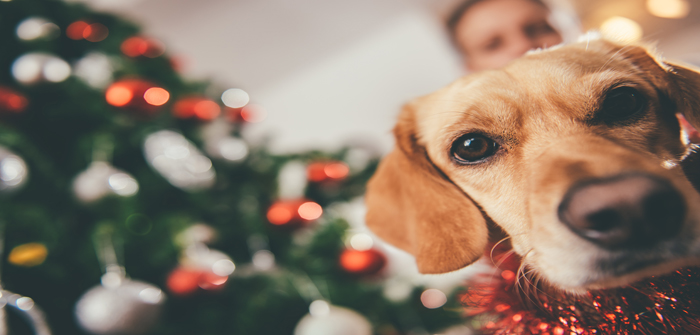According to the British Veterinary Association, 81 per cent of vets across the UK saw at least one case of toxic ingestion in pets during the 2016 festive period.
This has promoted the BVA to urge pet owners to watch out for potential hazards to their pets this Christmas.
Chocolate poisoning remains the most common cause of toxic ingestion at Christmas for dogs, with 74 per cent of vets seeing at least one case, according to BVA’s Voice of the Veterinary Profession survey. There has also been a spike in raisin or sultana poisoning over the past two years, with 54 per cent of vets reporting treating a case during last year’s festive season.
Many cats also suffered toxic ingestion last Christmas, with a quarter of vets treating cats for antifreeze poisoning. Festive decorations, gift wrapping and seasonal plants like lilies and poinsettias are other common reasons for pets landing up at the vets.
BVA president John Fishwick said: “Christmas is typically a fun and chaotic time for families, but the presents, treats and decorations can often prove dangerous for our pets if we are not careful. Many pet owners are aware of the risks of chocolate or other festive foods being toxic for their pets but, as our survey shows, it’s easy to be caught out by a kind gift left under the tree or a treat left out on the table, which curious animals can find hard to resist.
“Our advice is for givers to tell, and owners to ask, if there is anything edible in gifts and to keep such presents safely out of reach of your pet. If you suspect your pet may have eaten something they shouldn’t, then don’t delay in contacting your local vet.”


